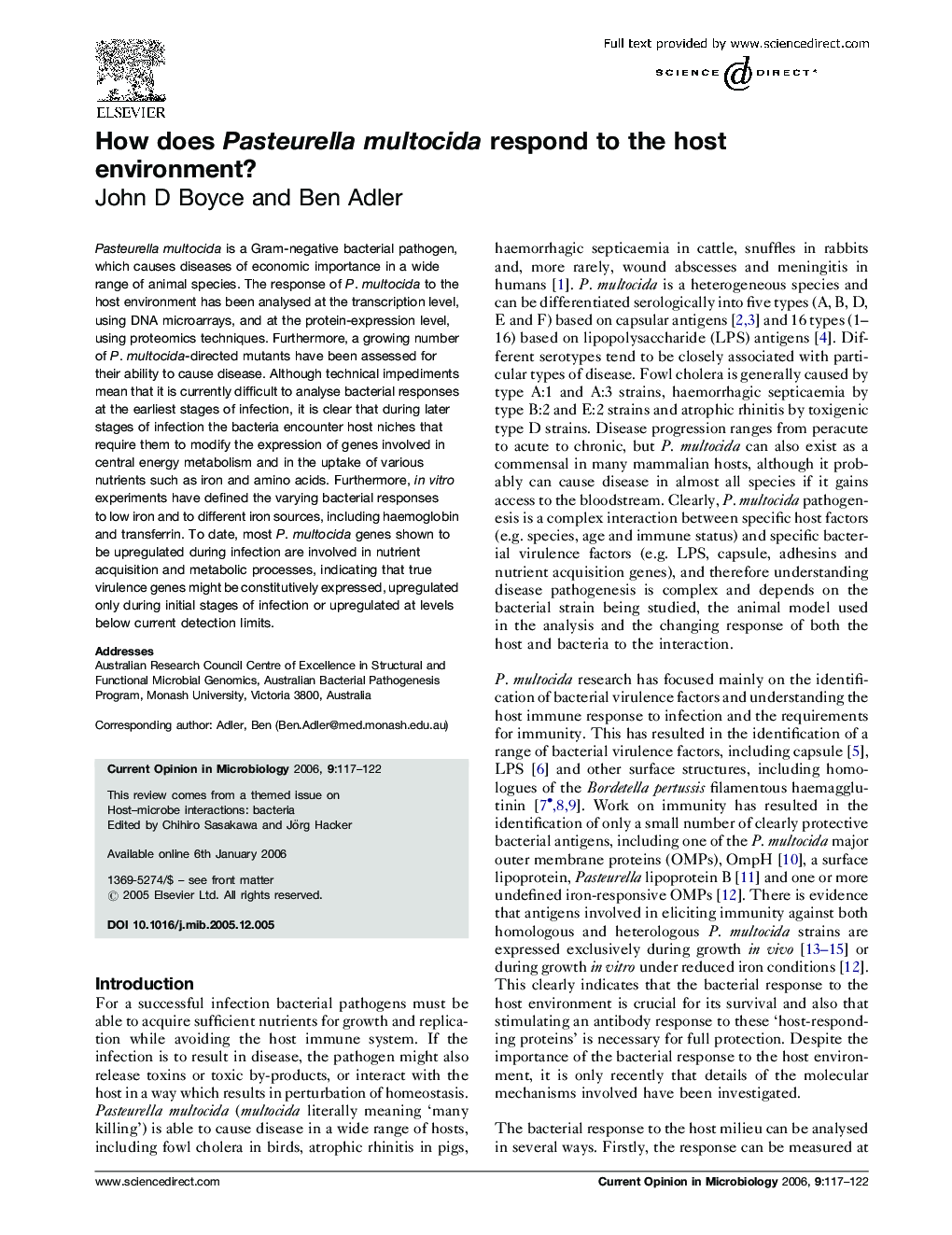| Article ID | Journal | Published Year | Pages | File Type |
|---|---|---|---|---|
| 3399789 | Current Opinion in Microbiology | 2006 | 6 Pages |
Pasteurella multocida is a Gram-negative bacterial pathogen, which causes diseases of economic importance in a wide range of animal species. The response of P. multocida to the host environment has been analysed at the transcription level, using DNA microarrays, and at the protein-expression level, using proteomics techniques. Furthermore, a growing number of P. multocida-directed mutants have been assessed for their ability to cause disease. Although technical impediments mean that it is currently difficult to analyse bacterial responses at the earliest stages of infection, it is clear that during later stages of infection the bacteria encounter host niches that require them to modify the expression of genes involved in central energy metabolism and in the uptake of various nutrients such as iron and amino acids. Furthermore, in vitro experiments have defined the varying bacterial responses to low iron and to different iron sources, including haemoglobin and transferrin. To date, most P. multocida genes shown to be upregulated during infection are involved in nutrient acquisition and metabolic processes, indicating that true virulence genes might be constitutively expressed, upregulated only during initial stages of infection or upregulated at levels below current detection limits.
